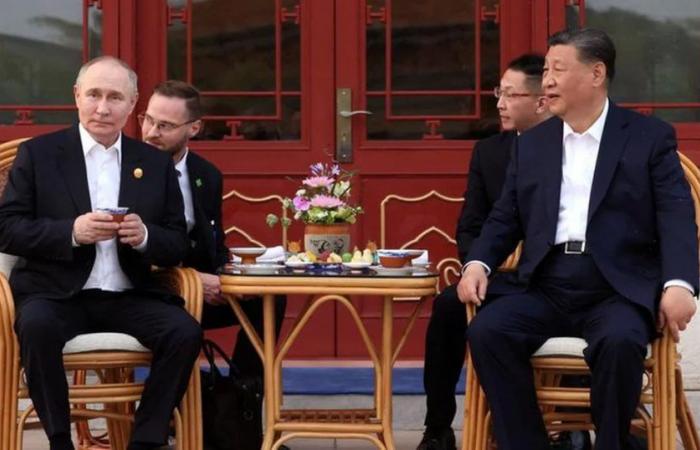The G7 Summit taking place in Bari, Italy, has China in the spotlight this Friday on the second day of meetings between the leaders of the seven most powerful democracies in the world. The Beijing regime has a position regarding the Russian invasion of Ukraine that, if at first it was viewed with distrust from the West, now there are no longer any doubts: its role is key so that Putin’s troops can maintain their offensive.
In this framework, the British media Financial Times cited a senior Biden administration official, who spoke with journalists in Bari about Xi Jinping’s support for Russia’s “defense industrial base” and defined it as a “critical issue.”
But Washington’s vision is not limited only to the impact on Ukraine but also to a concern beyond what happens in that conflict, since Beijing would help Russia develop missiles and aerial artillery that “They would pose a long-term threat to Europe’s security and are of interest to all G7 members.”he warned.
USA has repeatedly suggested to its European partners in the Group of 7 (the EU, France, Germany and Italy, as well as the United Kingdom) to be more aggressive towards Chinaespecially after his position regarding the Kremlin’s aggression against Ukraine and what it implies in harsh terms became clear: China has chosen to side with Russia against the West.
Debates on China emerge this Friday in Bari during the second and last day of the group’s summit in southern Italy. The EU announced a few days ago new tariffs on Chinese electric cars, arguing that they benefit from unfair subsidies. For its part, the United States sanctioned companies based in China that supply semiconductors to Russia, products that could help its war industry.
“China’s approach is tougher than before; The Europeans are definitely moving in that direction,” said another G7 diplomat involved in the talks and quoted by FT. The group’s statement is also expected to reflect that “the era of naivety towards Beijing is definitely over and that China is to blame for it.”
Joe Biden He already drew a clear line in that sense this Thursday, pointing out: “China is not supplying weapons, but rather the capacity to produce them and the technology available to do so. So, in fact, it is helping Russia.”
From Moscow, Putin showed his anger over the $50 billion loan that the G7 promised to Ukraine and that it will have the guarantee of the interests of Russian funds for 300,000 million dollars that have been frozen since the beginning of the invasion, in February 2022.
The head of the Kremlin intends to impose conditions for an immediate ceasefire: that kyiv withdraw troops from four disputed regions (he refers to Donetsk, Luhansk, Kherson and Zaporizhzhia) and the end of Western sanctions against Moscow.
Putin relies on bilateral trade with China, which amounted to $240 billion last year, according to the Beijing regime’s customs. That means a growth of 26 percent compared to 2022.






